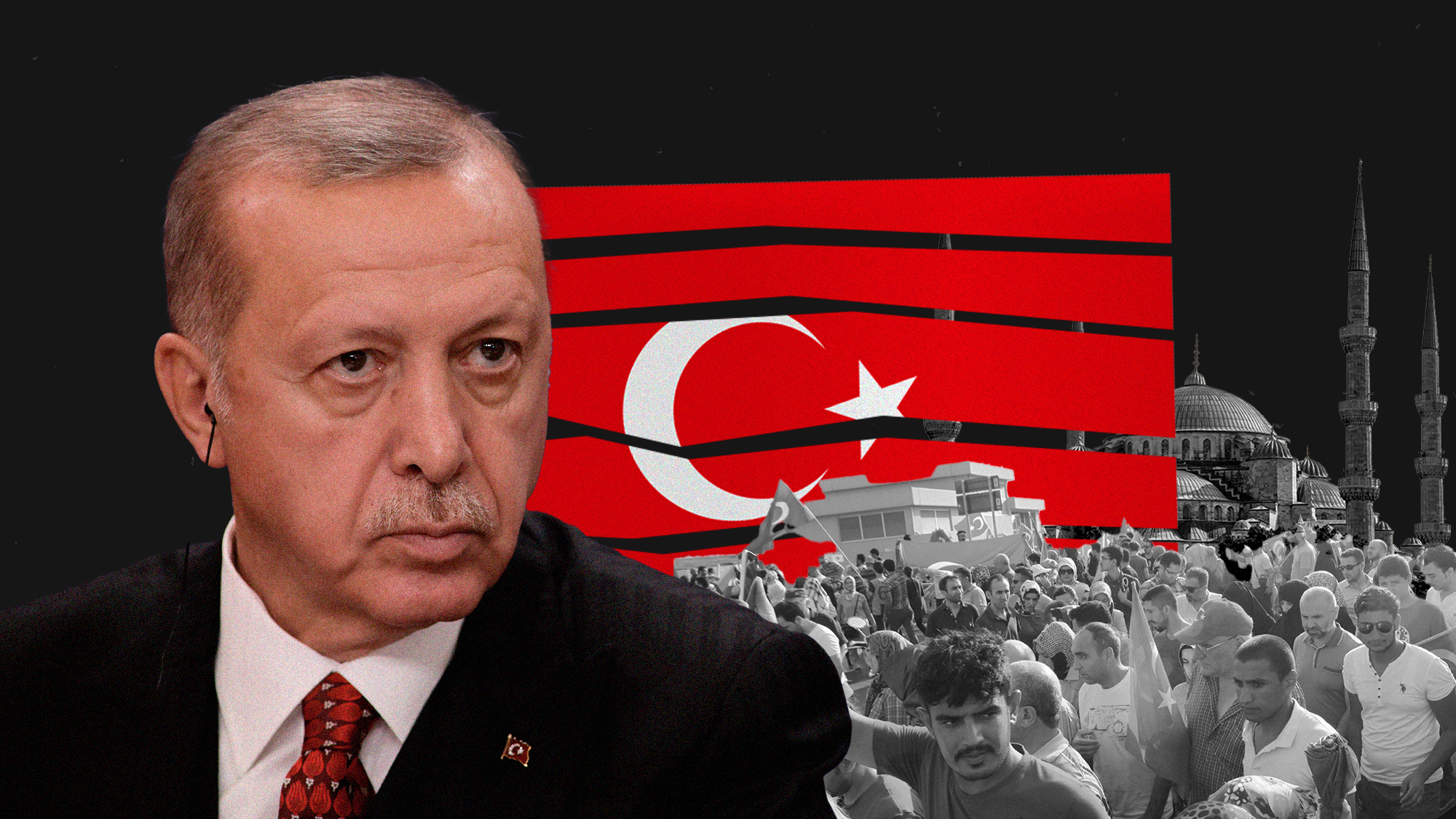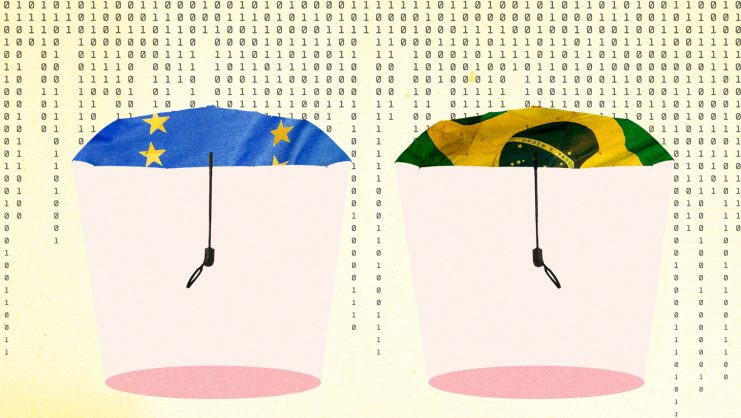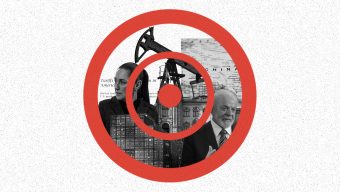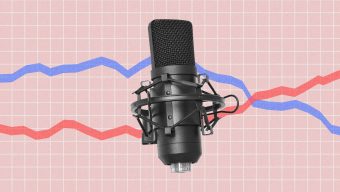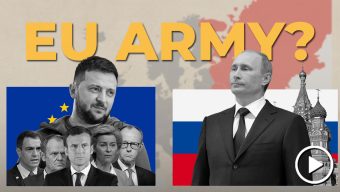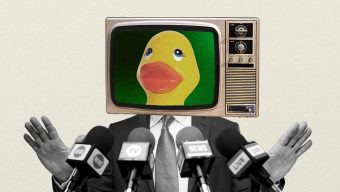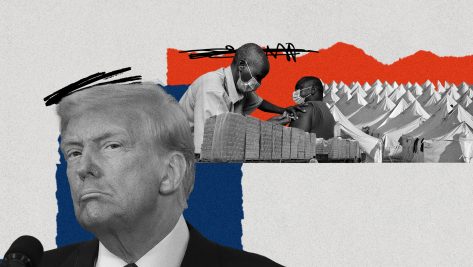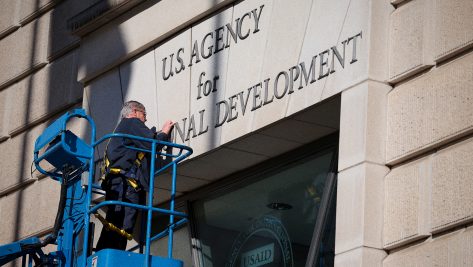A few weeks ago, I was in Istanbul for an academic conference and my driver told me a Turkish joke, one that illustrates the country’s current political vibe: A prisoner goes to the jail’s library to borrow a book. The librarian says: We don’t have this book, but we have its author. In Turkey, many a journalist, professor, and intellectual has been jailed or forced into exile – and yet here was a taxi driver openly amusing a tourist like me with a dose of local cynicism. Welcome to Istanbul, amigo.
Better the devil you know than the devil you don’t is the conclusion of the Turkish 2023 presidential election. Twenty years of Machiavellian politics later, Erdoğan remains. Many of us wonder how and why, but it doesn’t really matter what any Western mind thinks. He always wins with the surprisingly effective potpourri of authoritarianism, Islamism, and equilibrism that my driver seemed to enjoy so much.
Let’s not fool ourselves with the business-as-usual branding of the elections. What was at stake here was not whether one president would be replaced by another. Rather, the vote Turks made was to either continue on the (slowed) route to a secular democratic republic or to initiate a clear-cut deviation towards one of the multiple blends of a la carte Islamism that are abundant in the region.
Indeed, it is difficult to avoid the suspicion that Turkey today represents the most eloquent test to Samuel P. Huntington’s “Clash of Civilizations” theory, according to which the main lines of international conflict will be essentially cultural, not economic nor ideological – or, when shared, religious. In fact, Huntington famously ranked Turkey as a torn country, a nation with a single predominant culture that places it in one civilization while its leaders seek to shift it to another. According to this (conservative) reading, Erdoğan would therefore be the Ottoman that brings Turkey back to its original culture after an abnormal and heretic secular century. Relatively easy to understand: make Turkey great again.
Erdoğan has effectively convinced more than half the population of Turkey that they were better back when they were Muslim (and poorer).
Being the most Western of the Eastern and the most Eastern of the Western societies, there was eventually a toll to pay. Perhaps, in the end, it is not so easy to be a Turk. In his crowded political rallies during the last month before election day, Erdoğan rhetorically (and repeatedly) put the question to his followers: “What is it to be Turkish today?” (A: identity and nationalism.)
There should be no surprise that Erdoğan came out a winner yet again. In the same way that the likes of Trump, Le Pen, Orban, and Meloni clamor on about how we were better people, better parents, better neighbors, and better subjects (also better students) back when we were poorer, Erdoğan has effectively convinced more than half the population of Turkey that they were better back when they were Muslim (and poorer). It’s the same toxic, romantic nostalgia evident elsewhere.
Considering this, it is not so difficult to see that there are some historical inaccuracies in the nostalgic narrative. Fake news. The Turkish writer, singer, politician Zülfü Livaneli wrote in El País that the Ottoman people who ended up pushed onto Anatolia from all the lost Ottoman land after 1919 were anything but heterogeneous. Their “languages, customs, music, cuisine, religions and cults were all different.” So, Erdoğan is embracing the dubious historical logic used by most of our populist-nationalists.
Erdoğan is using old recipes for new times. Moral decadence? Anti-gay and pro-family narrative. Economic crisis? Blame the Syrians (and the Kurds). Earthquake tragedy? National unity around the flag. EU ambiguity towards Turkey? Say yes to Finland but no to Sweden. High Diplomacy? Cozy up with Russia while sending weapons to Ukraine. Continued dispute with Azerbaijan? Befriend Armenia.
A cascade of congratulations rushed at Erdoğan on his election victory. Everyone wants to be the President’s pal, or at least straddle the line enough to make something work. Putin was first to congratulate, according to the Kremlin, showing off his bromance. Then piled in the others with recognition, including Macron, Biden and Sunak, followed by Xi and Netanyahu. Even Ursula tweeted about the EU wishing to work on advancing the relationship. Let’s not forget that she is German, home to around seven million Turks, a good portion of them potentially anti-Erdoğan.
Why should this be considered unusual? Well, there’s the relentless violation of human rights, obscene control of the judiciary, X-rated persecution of opposition with a new law that criminalizes “disinformation,” new electoral laws to disadvantage rivals, amendments to the constitution that perpetuate those in power. The list truly does go on – and it will continue to do so until the next election (which he will surely win… is that Turkish humor?) Furthermore, there’s what the OSCE International Election Observation Mission stated in its report: “In an environment with restrictions on freedom of expression, both private and public media did not ensure editorial independence and impartiality in their coverage of the campaign, detracting from the ability of voters to make an informed choice…biased media coverage and the lack of a level playing field gave an unjustified advantage to the incumbent.”
Yet, in the end, all this adds up to is just a bit of unpleasantness. We Westerners seem to finally understand that in order to catch the fast train to the new global order, we must, regrettably, upgrade our flirt with the bad guys.
Erdoğan’s sui generis foreign policy has borne fruit. Marketed as the ideological, cultural, and military middle hub between the West and the East, the North and the South, Turkey is now as equidistant as possible from every single trouble out there. Here is a short list of the foreign policy dilemmas:
Russia-Ukraine: Erdoğan brokered a deal so that Russia ended the blockade on Ukraine’s grain supply and therefore plays an active role in refereeing the war – and, as a NATO ally member, Turkey fully participates in the organization’s operations. Then again, Erdoğan does not miss a chance to brag about his hyper-testosteronized alliances at the dark end of the street.
China: Self-appointed middlemen of the non-existent middle, Erdoğan and Xi have sought to expand their regional leadership positions in Central Asia, for example stepping up ties in Kazakhstan and Uzbekistan. Moreover, Erdoğan is pressing China to be a much larger investor in Turkey’s branch of the Belt and Road Initiative and in doing so, is going after resources initially promised to the thriving Gulf Muslim brothers. Proxy potential conflicts.
Iran: Erdoğan’s visit to Tehran in July took many by surprise. The purpose of the trip was apparently to leave behind past antagonisms and – no more no less – boost oil and natural gas imports from Iran. Despite the obvious obstacle of US sanctions, Erdoğan feels that an increase in bilateral trade-offs will help cushion Iranian-Turkish zero-sum regional competition.
Refugees. Erdoğan has warned Brussels that it will soon prove difficult for him to stand by his promise to keep refugees from entering the EU via the Greek coasts. Estimates vary, but Turkey is host to roughly four million migrants, the majority of whom come from Syria and now more from Afghanistan. The swelling number of refugees and asylum-seekers has proven unpopular with the Turks and fodder for Erdoğan’s rivals.
Greece. The disputes in the Aegean Sea make for daily headlines on both sides, not to mention some indispensable and ongoing drama between Brussels and Ankara. At the end of June, there will be a snap parliamentary election in Greece – one that will likely benefit conservative party New Democracy who might have to negotiate the government with Kyriakos Velopoulos of the ultra-nationalist populist Greek Solution party.
To top everything off, Hakan Fidan, the all-powerful head of the Turkish National Intelligence Organization, has been recently appointed the country’s top diplomat. The spymaster will finally be able to print his name on the foreign policies that he was already plotting. (Sailors, you’ve been warned.)
Of course, as my taxi driver would certainly be able to explain better than I, things are always more complex than they appear in Turkey. We could note that there were only four points difference between Erdoğan and Kemal Kilicdaroglu (little more than two million votes), that Turkey is profoundly polarized, that Erdoğan is now at his lowest popularity ever. We could go so far as to call him a sociopath. Yet, changing the parliamentary for a presidential system was a master move, one that will ensure Erdoğan generous and almost unchecked power to shape Turkey according to his messianic and nativist (national-populistic) vision. We could say a lot of things when talking about Erdoğan, but the thing that comes to my mind is Make Turkey Great Again. And Again.
© IE Insights.



